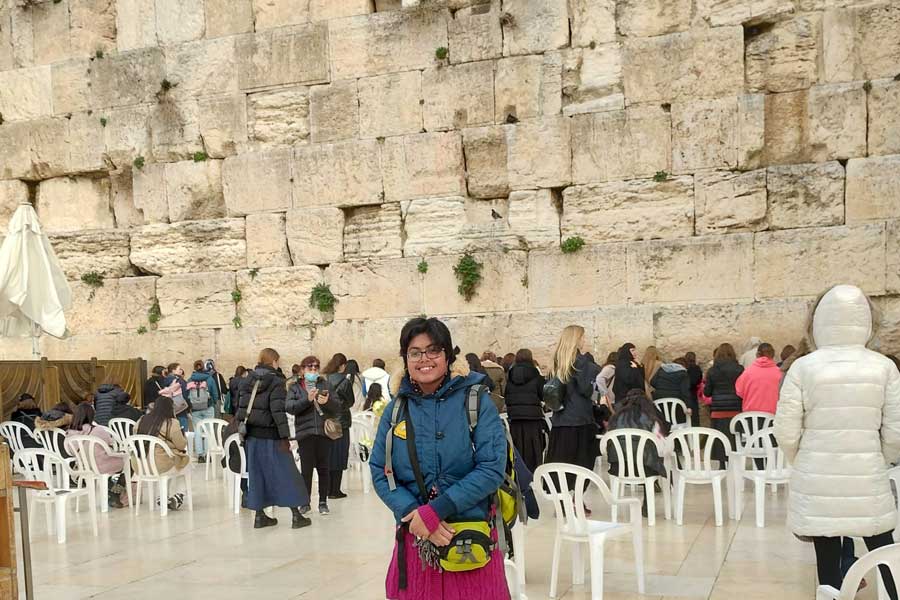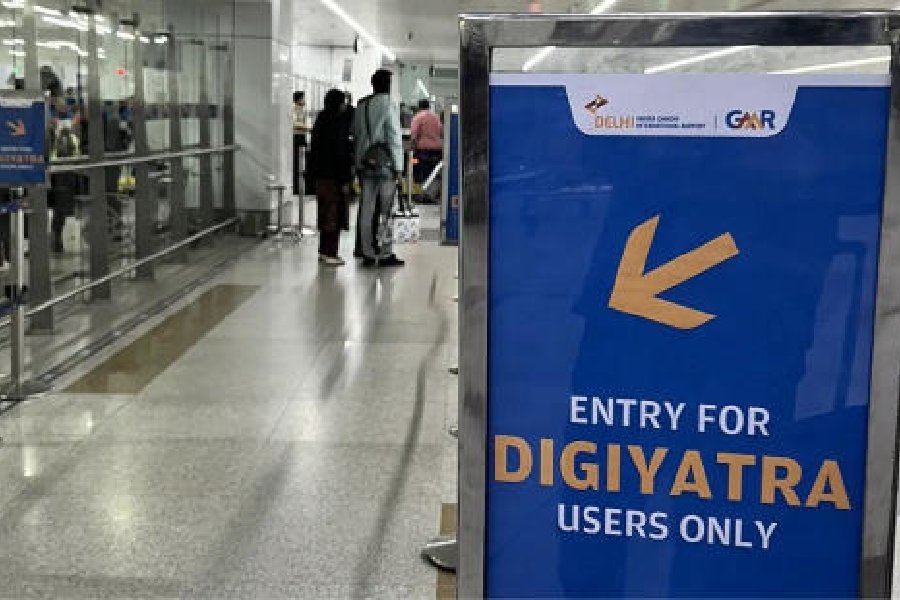At first, Sreyashi Bhowmick, a post-doctoral fellow with the Geological Survey of Israel, didn’t pay much heed to the sirens blaring at Jerusalem at six o’clock in the morning last Saturday when she was barely out of bed.
“This is a well-protected country,” she thought to herself, “and Hamas missiles, if any, would surely be intercepted by the Iron Dome,” she said, referring to the famed missile interception platform the country uses.
It wasn’t until about four hours later when the sounds of sirens continued to shatter the air did Sreyashi realized something was seriously amiss.
“I live by myself in a private apartment in the city and I couldn’t decide what my next course of action should be. I was in touch with my friends in Tel Aviv and Beersheba and eventually got a grasp on the magnitude of the attack. The TV news reported that the Hamas rockets this time were far greater in number than what the iron dome could effectively shield. That’s when I chose to take shelter in the community bunker located at a distance of about a minute and a half from where I stay,” Sreyashi recounted.
Sreyashi, who hails from Mukundapur in the south-eastern edges of Calcutta, was among the first batch of 212 Indian students evacuated from Israel since war broke out with the Palestinian terror outfit Hamas, named Operation Ajay by the Indian establishment. The first aircraft landed in Delhi in the early morning on Friday which was followed by a second flight out of Tel Aviv that reached the Indian capital a day later.
During her stay in Jerusalem since December last year, Sreyashi said she never experienced anything like this before. “I heard sirens go off once or twice before. It hardly had any impact on public life. Those were when not more than 100-200 rockets were fired. But this was different. This time a staggering 5,000 rockets were launched,” she said while stating that her location was merely 70 kilometers from the Gaza border.
“The real panic among Jerusalem residents spread not so much from the Hamas rockets but from the information that some 200-300 terrorists had infiltrated into Israel and had carried out massacre in the bordering areas. For the next few days, urban life in Jerusalem came to a complete halt. People locked themselves in and there was pin-drop silence on the streets,” Sreyashi narrated, while explaining that moving 50 kilometers inside the border in a tiny nation like Israel could mean that terrorists would be within striking distance of big cities like Jerusalem and Tel Aviv.
“During that period sirens would sound incessantly and I could see and hear Israeli fighter jets over Jerusalem sky. After three days when I finally left my apartment to shop for essentials, I found that the grocery shops of the city had already run out of some of the basic stuff since the supply chain had been disrupted,” she said.
Lauding both the Indian Embassy in Israel and the Israeli government for facilitating the smooth evacuation of international students and the Bengal government for henceforth taking it up from Delhi, Sreyashi said: “The external affairs ministry was closely monitoring the situation right from the beginning. Representatives of student groups in Israel were always in touch with the embassy. The database of Indian students was kept ready well in advance which is why the evacuation process went very smoothly. The Israeli establishment took great care to ensure that our security was never compromised amid the prevailing chaos.”
“In Delhi we had state government vehicles transporting us to Banga Bhavan where we stayed overnight and officials took every care to tend to the mental and physical exhaustion we were suffering from. Even after landing in Calcutta, I was escorted up to my home doorstep by a government vehicle,” she informed.
Asked about her plans to return, the student said she looked forward to returning sooner rather than later. “Unlike popular perception, Israel is a very secure place. The country is self-sufficient in its military prowess and people there have the necessary training to combat such situations. So I am hoping things would turn around quickly and I will be intimated by my senior to get back.”
For Sanjit Mondal, another post-doctoral research fellow, but at the Ben Gurion University of the Negev at Beersheba in southern Israel, sounds of Hamas rockets exploding on the ground and in mid-air after being intercepted by Israeli missiles were a lot closer than in Jerusalem.
“I could distinctly hear the blasts taking place in the city outskirts, ones which the iron dome missiles failed to intercept, when I took shelter in the university bunker and also saw the smoke trails in the skies of the neutralized Hamas rockets once outside the shelter,” Sanjit narrated.
“But every time I ran to the shelter, there was sufficient warning period from the Israeli authorities despite the suddenness of the attacks. No student was ever caught off guard,” he maintained.
Like Sreyashi, Sanjit, too, heaved a sigh of relief at being able to reach home in Kalyani, Nadia, before the situation on the ground spiraled out of control. “I planned to return for the Pujas anyway but in the wake of the sudden conflict, all normal flights were canceled. I am grateful to the Indian government for facilitating the evacuation without a glitch,” he said, adding: “I am hoping that the situation would get back to normal within a month. I will return as soon as that happens.”
That sentiment was also shared by Shruti Mondal from Burdwan town who was evacuated from the Technion Israel Institute of Technology in the northern Israeli port city of Haifa where she is conducting post-doctoral research in Chemistry. “Our areas weren’t as affected but I chose to pay heed to the Indian Embassy advisory and leave the country for the time being. But I will return as soon as the ground situation in Israel returns to normal,” she said.











